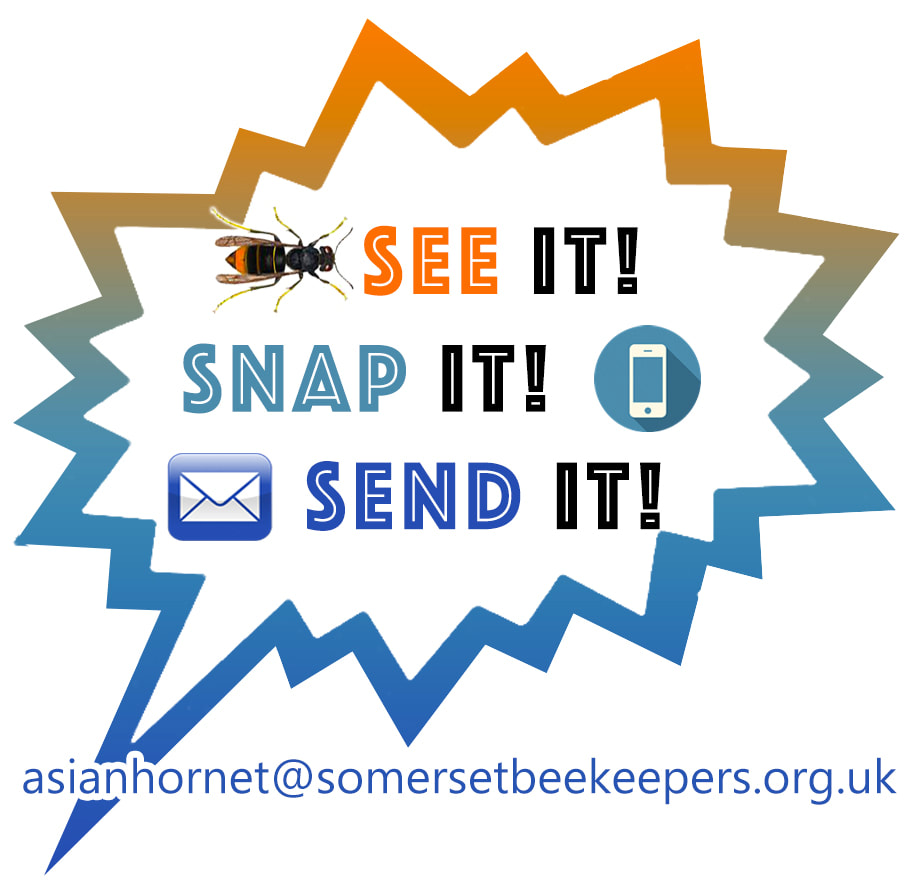 The Chairman of Somerset Beekeepers’ Association, Stewart Gould, is urging beekeepers to keep local honey bees and reject a campaign to overturn the recent ban on bee imports. “Locally bred bees are perfectly adapted for the conditions; imported bees carry the risk of pests and diseases and are genetically better suited to the country of origin,” he said. His comments follow media coverage of the new Brexit rules which have stopped the importation of honey bee colonies directly into the UK from the EU although queen bees are still allowed. HMRC is aware that there may be attempts to get around the import rules by using Northern Ireland as a back door but anti-avoidance measures are in place. “The importation ban is important and avoids the risk of bringing new problems to the UK’s bees. For example, bees in many areas of the country suffer from Chronic Bee Paralysis Virus which is associated with the importation of bees. And we are worried that the small hive beetle, which is in southern Italy, could come into the country and decimate our bees.” Somerset Beekeepers’ Association runs courses to help members to rear their own queen bees from successful colonies which ensures they are adapted to the conditions in their own area. Patrick Murfet from a beekeeping equipment company in Kent has started a petition calling on the government to reverse the new rules. The number of beekeepers continues to rise in the UK; membership of the British Beekeepers’ Association stands at more than 28,000 while Somerset’s is topping a record 1,200. Ends Somerset beekeepers are calling on the public to pick up their smart phones and help defend the county’s bees against dangerous Asian hornets.
“See it, snap it and send it!” said Lynne Ingram, co-ordinator of Somerset’s Asian hornet action teams. “We need the public’s help to save our bees from the Asian hornet which has been wreaking havoc through Europe since 2004,” added Lynne, a beekeeper with 30 honeybee colonies near Bridgwater. Asian hornet week – September 7-13 – is a key time to spot the yellow-legged insects whose sting can be fatal and their arrival decimate native pollinators. “Now is the time to spot the hornets so that their nests can be destroyed before they multiply. “If you see a hornet take a photo, send it to us and we’ll do the rest. Or use the official Asian hornet watch app and report it.” An Asian hornet (Vespa velutina nigrithorax) is about twice the size of a honeybee, has an orange face and a dark abdomen with a yellow fourth segment. Its thorax is entirely dark brown or black and velvety, and the insect has bright yellow tips to its legs. “The arrival of the hornet in Britain is especially bad news for bees - a favourite food source - and a single hornet can completely devastate a beehive, devouring up to 60 at a time.” In the autumn Asian hornets can be spotted on flowering ivy, fallen fruit and hawking honeybees outside their hives as well as catching other pollinators. Asian hornets have been spotted in the UK and are rampant on the Channel Islands after they were accidentally introduced into southern France from China. The University of Exeter is carrying our research into the impact Asian hornets are having on honeybees and other pollinators where they have become established. Research Fellow and behavioural ecologist Dr Peter Kennedy said: “Asian hornets are anticipated to be a significant mortality factor influencing a broad spectrum of insects, including honeybees, on top of existing stressors (habitat loss, disease, pollution, climate change, etc.) that already impact our beleaguered native pollinator community. “Worldwide, invasive non-native species are recognised as being a serious threat to biodiversity, and it is consequently important that we encourage the public to be informed, vigilant and proactive in reporting the presence of Asian hornets and other invasive species.” Report sightings to [email protected] or use the Asian hornet watch app. Photos, posters and even a colouring sheet to help identify the Asian hornet can be found on the Somerset Beekeepers’ website: https://www.somersetbeekeepers.org.uk/resources.html Ends |
Archives
September 2023
Categories
All
|
Somerset Beekeepers Association Charity © 2021 Registered CIO Charity 1206483
Affiliated to the British Beekeepers Association
Click here to view our Privacy Policy
Affiliated to the British Beekeepers Association
Click here to view our Privacy Policy

 RSS Feed
RSS Feed
